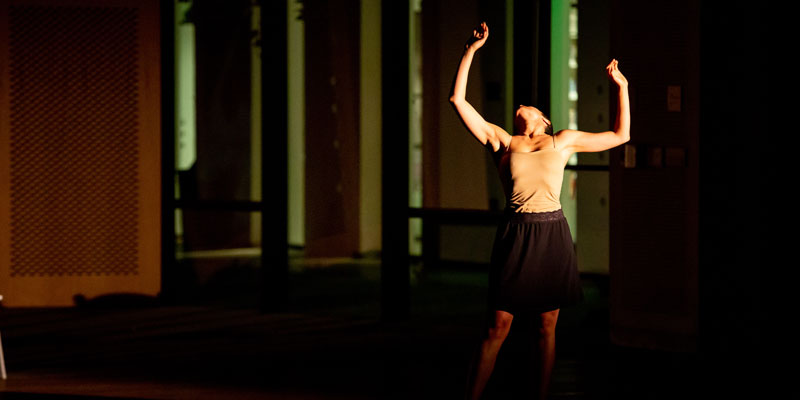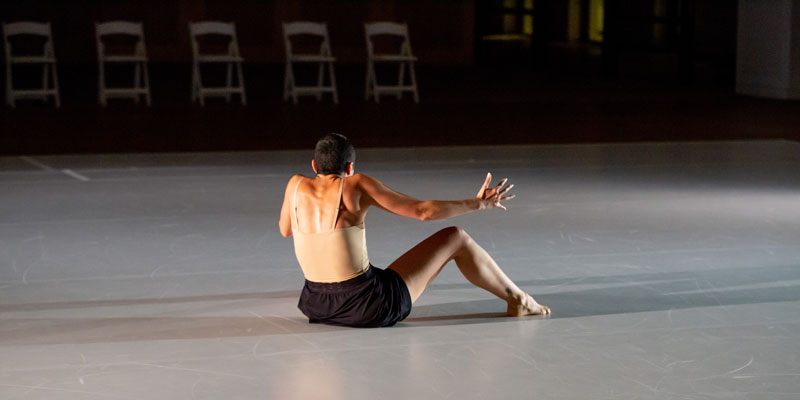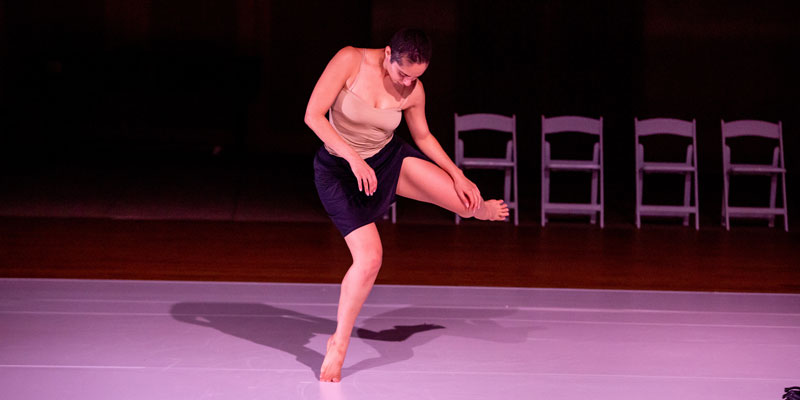Among the healthiest and most encouraging developments in the performing arts world is how artists consciously draw themselves closer to their audiences. It’s a development that emancipates the artist from the cult of perfectionism and mysticism, where candid expressions about doubts and uncertainties in taking creative risks are welcomed. Likewise, audiences begin to see the performer as human, as complex and layered as any individual can be emotionally, intellectually and socially.
In dance, the ante for making a deeper connection with the audience often is higher than with her sisters in performing arts. Audiences typically hesitate or are intimidated by what they perceive as dance’s ephemeral and esoteric character. But, dance, especially as it has encouraged theatrical aspects, has risen adeptly to the aesthetic challenges. Dance is a remarkable story-telling art form.

Next week, Repertory Dance Theatre (RDT) will present Framed, a solo show by choreographer Danielle Agami on March 14 7:30 p.m. at the Rose Wagner Center for Performing Arts in downtown Salt Lake City. Agami, an Israeli native, runs the ate9 dance company in Los Angeles, which has gained a good amount of attention in the international dance community.
The simplest description for the aptly named Framed piece is that it is a comprehensive autobiographical portrait rendered in the artist’s own choreography.
Rather than focus on a single or a few distinct events from her life, Agami developed the work as a comprehensive self-reflection of the emotional connections to and interactions with the numerous women role models of her life. Thus, Agami brings to bear her reflections from her native Israel as well as her life experiences in Seattle and Los Angeles, her current home. Agami danced with the Batsheva Dance Company based in Tel Aviv for eight years before coming to the U.S. in 2011, where she headed Gaga USA. A year later, established her company ate9 in Seattle and then settling in Los Angeles.
Agami is well known for her work with the Gaga movement language, a relatively recent development that particularly has served the more prominent storytelling aspects of modern dance. In a 2016 interview with The Utah Review, Agami explained that Gaga is an egalitarian form of artistic dance expression “because it trains us to be fully effective and efficient in our body movements as we communicate – in essence, talking through our eyes.”

Agami’s artistic expression in choreography focuses on the happiness and joy that a new dance composition can bring, even when it communicates and evokes a theme arising from tenser, darker events or moments. Naturally, self-awareness of one’s surroundings and the emotions and reactions of people in those surroundings become handy sources of inspiration. To wit, a LA Dance Chronicle review of an earlier performance of Framed summarized Agami’s artistic intentions compactly:
She is a woman who doesn’t fit into her background or surroundings. The feeling is best described through her relationship with Israel—a place she loves, but where she feels uncomfortable being a woman. This frames the rest of the brash piece, characterized by saucy stances, bold opinions and a desire to push the boundaries in order to make the viewers feel how she feels.
In an earlier interview, she mentioned the intense rush of watching a good soccer game, observing the behavior of animals, or both positive and negative experiences of travel. With Framed, she says in a recent interview with The Utah Review, “as a dancer, I express the layers and difficulties I have experienced. While there are times I feel so exhausted I also realize just how addicted I am to movement.”
In 2016, Agami and most of her dancers from the ate9 dance company came to Salt Lake City for an artistic residency with RDT. She also set a new work, Theatre, which RDT premiered later that year. That work will be presented again next month in RDT’s Voice concert. Theatre reflects Agami’s artistic objective in how choreography focuses on the happiness and joy that a new dance composition can bring, especially as dancers become more naturally aware of their own surroundings and performance spaces along with acknowledging in how the emotions and reactions of people in those surroundings become handy sources of inspiration.

Agami created Framed last year, after receiving the Virginia B. Toulmin Fellowship for Women Choreographers. In 2016, she was recognized with the Princess Grace Award for Choreography and created a new work, Pick a Chair, with Visceral Dance in Chicago. Among the works she has created with her company is calling glenn, accompanied by live music performed Wilco percussionist Glenn Kotche.
For more information and tickets, see RDT’s web site.

